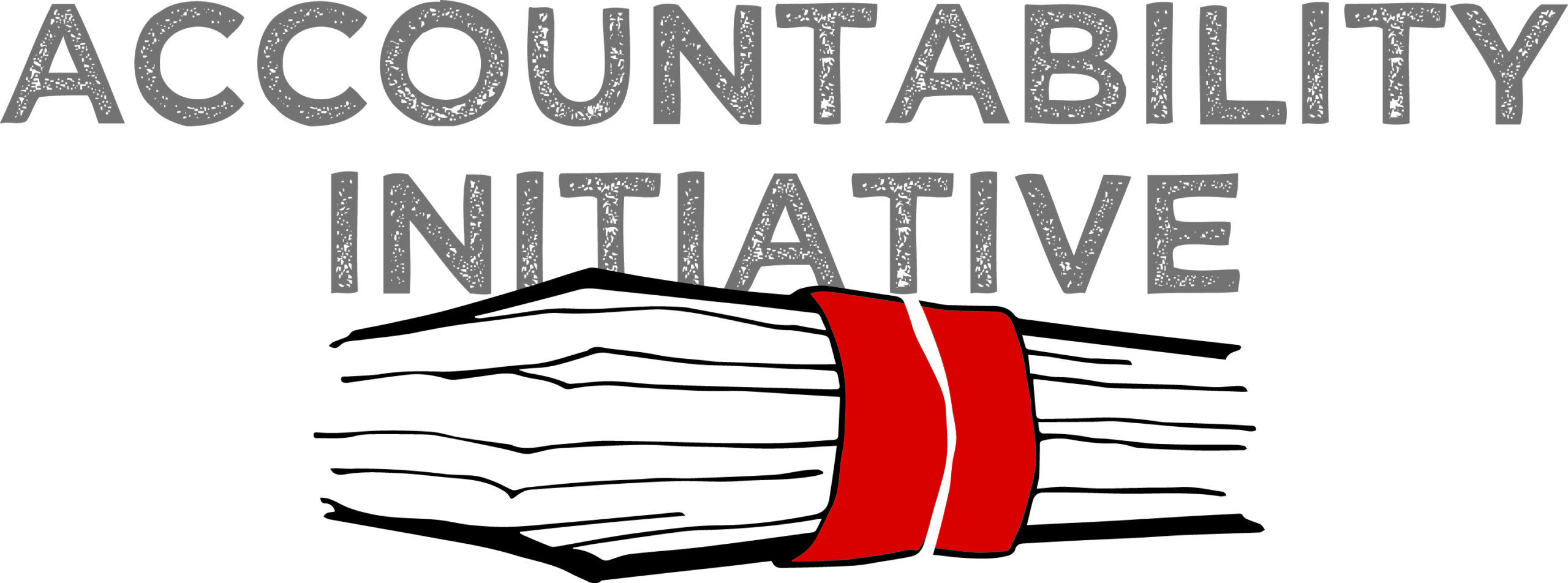
Accountability Initiative in 2017: The Year Gone By
17 January 2018
Welcome to the start of a brand new year! Before 2018 begins in full swing, we bring you highlights of our activities in 2017. The year marked AI’s increasing contribution to on-ground governance practices. From policymakers, journalists and aspiring development practitioners to field workers implementing critical welfare schemes, we held no holds barred conversations where it counted. With your support, we look forward to continuing such dialogues this year, and making the voice asking for more accountability in governance many times stronger!
JANUARY

Analysing Budget 2017
Our Budget Briefs published every year have emerged as a much-awaited source of analysis on India’s Union Budget. In 2017, we looked at the allocations, expenditures and progress of 7 key social sector schemes including the Sarva Shiksha Abhiyan (SSA), National Health Mission (NHM), Swachh Bharat Mission (SBM) and the Pradhan Mantri Gram Sadak Yojana (PMGSY). Given the current focus of the Government on Direct Benefit Transfers (DBT) and JAM (Jan Dhan, Aadhaar and Mobile Connectivity), the brief also included an analysis of the current coverage and implementation challenges for JAM and DBT in the series. You can find the complete set here.
FEBRUARY

Breaking down the Budget for the media
Interpreting Budget documents is a hard task. We shared our analyses and lessons learned from reviewing Budget documents for the past 9 years with journalists to make interpretation easier for them and their readers. You can learn some key elements for yourself by visiting here.
MARCH
Reinventing the PAISA Field Cadre
AI’s flagship PAISA survey, which tracks fund flows and expenditures of welfare programmes, is India’s largest citizen-led expenditure tracking survey. Our PAISA Associates field cadre located in 5 states are critical to making this effort a success. Read the experience of an AI PAISA Associate who works on education and what she has observed while being in the field.
APRIL

Identifying challenges of Swachh Bharat Mission in Udaipur, Rajasthan
On the request of the local administration in Udaipur, AI began a survey to understand the process involved in declaring Gram Panchayats Open Defecation Free (ODF) and challenges in implementation for the rural arm of SBM. The 3-month study yielded insights on the functioning of the SBM machinery and were shared with the administration. A report of the study findings will be available by early 2018.
MAY
Understanding the family planning machinery in Bihar and UP
In 2012, India signed the FP2020 which committed to increase allocations for Family Planning (FP) and strengthen access to quality FP services. In order to understand the process of allocations, releases and expenditure on FP activities and analyse whether these are aligned with the FP2020 goal AI undertook a study on unpacking the processes of planning, budgeting and expenditure at the state and district level under the NHM. Commissioned by the Population Foundation of India (PFI), the study included 68 detailed qualitative interviews with officials at all levels in 2 high-focus states, namely Bihar and Uttar Pradesh. A working paper of the same will be available in a few months.
JUNE
Analysing fiscal federalism in India
The complexity of fiscal transfers between the Union-state governments in India is little understood. Yet there is little evidence about the efficacy of fiscal transfers for specific public policy objectives. A paper analysing evidence from past approaches to fiscal transfers for health was released this month. A collaborative effort of AI and the Centre for Global Development, the paper received wide attention. It can be downloaded from here.
JULY

Bridging the gap between citizens and the bureaucracy
From securing basic essentials such as water to schooling and Aadhaar, a blog series capturing real stories of the way in which ordinary citizens have navigated the bureaucratic system was the highlight of this month. Do read the gist of the series here.
AUGUST
Making data work for accountability in education
As part of a UNESCO commissioned study, AI carried out a field survey on the implementation of the usage of elementary education data for planning, monitoring and demanding accountability. The study was conducted in Himachal Pradesh, Rajasthan and Madhya Pradesh and focussed on understanding the way in which school-level data is being used for ensuring transparency and accountability in the public education system. The study also explores the link between awareness of school-level data in the public and its usage by parents, teachers and School Management Committee (SMCs) members to demand accountability. The study will be publically available in mid-2018.
SEPTEMBER

Grooming the next generation of public policy practitioners
AI experts engaged with students of the Indian School of Development Management (ISDM) on understanding state capacity. The unique course offers insights on the challenges facing administrative institutions, the root causes of governance failure, and designing public policy interventions in a way that addresses these lapses.
Insights on education for the Economically Weaker Section
AI also contributed new understanding on the provision of 25 per cent seats for children from economically weaker and disadvantaged sections of society in private unaided schools under the Right to Education Act. The report entitled the ‘State of the Nation: RTE Section 12(1)(c)’ is a collaborative effort of Indian Institute of Management-Ahmedabad, Centre for Policy Research and Central Square Foundation. You can access the paper here.
OCTOBER

Understanding perspectives of Delhi’s public school teachers
A new study on education in Delhi’s public schools began at the request of the Delhi Commission for Protection of Child Rights. The study seeks to understand how teachers’ time is distributed across different activities in schools, whether their administrative tasks affect teaching time, the amount of time teachers spend outside of official hours engaging in school related work, and to provide insights on teachers’ perceptions of their job. Read a blog on what teacher’s actually think of teaching and learning.
Challenges of financial management in Bihar’s School Management Committees (SMCs)
AI conducted a field survey on maintenance of finances by SMCs in Purnia and Nalanda districts of the state. As part of the study, we recorded challenges and difficulties in maintenance of cashbooks/passbooks with respect to funds for key SSA grants and two state-level schemes. The process of implementation of DBT in the two schemes was also examined. As many as 590 households and 1000 students currently studying in rural elementary schools were surveyed for this purpose. The findings were presented to top SSA officials and have been accepted by them.
For evidence-based decision making
We returned to ISDM with a workshop for development practitioners on understanding and applying research. Research is a key lens through which policy-makers and other stakeholders can identify policies that are more effective, and critically analyse how these can be improved. Complement your perspective with a 2-min read on what it will take to make evidence-based policies a reality.
Strengthening the accountability movement
AI participated in the 5th National Convention of the National Campaign for Peoples’ Right to Information. A panel discussion comprising AI experts explored transparency and accountability in the implementation of the Right to Education Act. Explore how RTI has been used by ordinary citizens to ask for a more accountable administration.
DECEMBER

Transforming local governance
Our cadre of PAISA field associates were facilitated as trainers on a new flagship PAISA course. Available for the first time in Hindi, the course – ‘Hum aur Hamaari Sarkaar’ – will be taken to grassroots-level field workers in the heartlands of India in 2018. The course offers critical analysis of state capability, especially at the local governance level. Two pilots were conducted in December – one with Block level coordinators of Nehru Yuva Kendra in Rajasthan and the other with District level coordinators of Pratham in Bihar.
Exploring community approaches to sanitation
AI and the Scaling City Institutions for India (SCI-FI) teams at the Centre for Policy Research organised a conference which brought together prominent academics, policy researchers and practitioners in the sanitation sphere. The conference deliberated on sanitation policy and implementation, shared learnings and provided recommendations on the issue of safe sanitation, including but not limited to the role of SBM. Click to know the progress of SBM-Gramin 3 years on. The conference report is available here.
Social Audits in Meghalaya
We ended the year with increased participation of the public in governance as Meghalaya became the first state in the country to pass a law on the Social Audit of services. AI was invited by the Government of Meghalaya to participate in a National Convention on Social Audit. The aim was to draw upon insights and gain feedback from academics, activists, members of the CAG and central ministry and journalists to make the process stronger.





